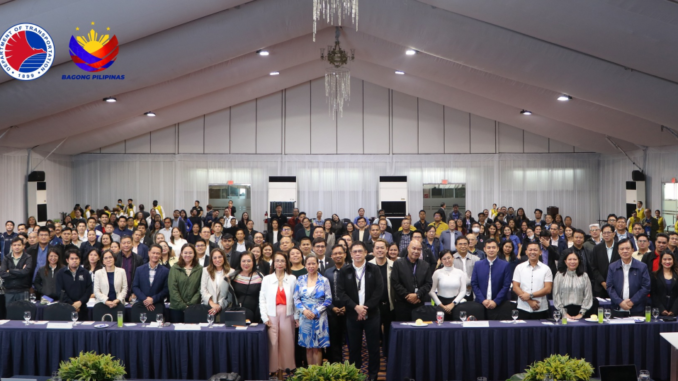
THE Maritime Industry Authority (Marina) critiqued five draft proposals to revise the STCW Convention to address current challenges and future needs in the maritime industry.
Through its STCW Office, Marina conducted the “Usapang STCW” on September 4 to strengthen its proposals for the STCW Convention’s revision, gathering stakeholders’ insights and feedback on five draft papers intended for submission to the International Maritime Organization (IMO).
Executive Director Samuel Batalla of Marina’s STCW Office emphasized the importance of inclusivity and forward-thinking in the revision process.
A Cosco multipurpose and heavy lift ship at the Port of Guayaquil in Ecuador. PHOTO from ICTSI
“We are committed to contributing to a convention that is not only a regulatory framework but also a tool for empowerment,” Batalla said.
He highlighted the goal of ensuring that the convention supports all maritime stakeholders, including seafarers, maritime education and training institutions, crewing agencies, and shipping companies, in navigating a dynamic future.
“Your contributions are invaluable in shaping a Convention that truly reflects the realities of our industry, the Philippine context, and the necessary improvements that will bring positive impact to the next generation of Filipino seafarers,” Batalla said.
The forum featured discussions led by key figures from Marina and industry experts, including Maritime Industry Development specialist Margie Mataac, who presented a paper on the digitalization of STCW documentation, and MET Standards supervisor Capt. Ronald Sediego, who discussed reducing onboard training requirements under Regulation II/1, focusing on using advanced simulators.
The International Seafarer’s Welfare and Assistance Network country manager, Marville Cullen Espago, addressed seafarers’ welfare issues, particularly workplace violence and harassment. MET Standards Supervisor C/E Charlie Pandongan explored training and qualifications for seafarers on vessels subject to the IGF Code. The final presentation by MET Standards supervisor Herbert Nalupa aimed to resolve gaps between Regulation I/10 and Regulation I/2, proposing harmonization measures for improved implementation.
The event was attended by representatives from national government agencies, maritime higher education and training institutions, and licensed manning agencies, whose feedback is expected to play a crucial role in shaping the Philippines’ proposals to the IMO, reinforcing the country’s proactive stance in the global maritime regulatory landscape.


Be the first to comment